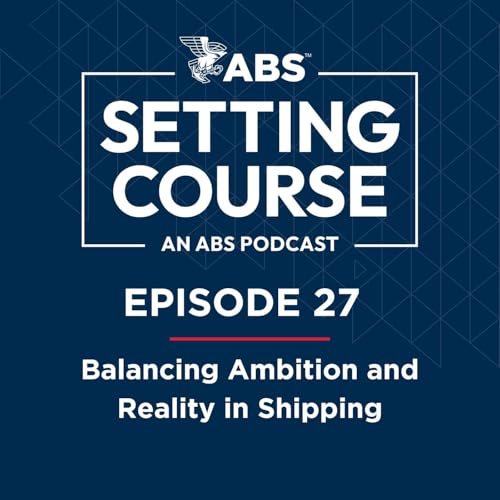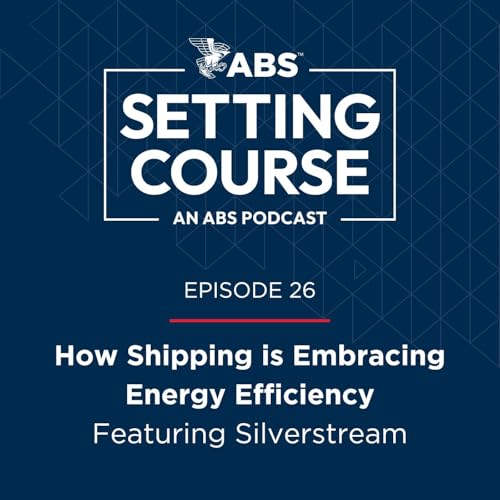In this episode of Setting Course, an ABS Podcast, we dive into the world of unmanned surface vehicles (USVs) and their impact on maritime operations — from commercial to research to national security.
Featuring insights from retired U.S. Navy Vice Admiral and current Saildrone President John Mustin, ABS Senior Vice President of Global Engineering Gareth Burton, and ABS Director of Government Engineering Jihed Boulares, the discussion explores the key elements of successful autonomous systems and the critical role of human oversight.
The guests also highlight the rigorous standards and rules already helping to enable safe and efficient operations for USVs in real-world conditions while regulations continue to develop.
Don’t forget to share this episode on social media, leave a review on your favorite podcast platform or send feedback to podcast@eagle.org. Discover how ABS is helping advance the maritime industry at www.eagle.org.
KEY POINTS
- Saildrone’s USVs have achieved full classification status from ABS, setting a precedent for autonomous technology.
- Effective risk mitigation for USVs relies on robust perception, reliability and trust to help ensure safe operations.
- The regulatory framework for USVs is evolving, necessitating adaptations to existing guidelines for autonomous vessels.
- Human oversight is essential in high-risk operations involving USVs.
- The integration of autonomy in maritime operations is already happening, enhancing commercial operations, climate research, domain awareness and more.
GUESTS
A former U.S. Navy Vice Admiral and C-Suite technology entrepreneur, John Mustin brings to Saildrone more than three decades of experience at the intersection of national security, emerging technology, team development, and enterprise growth. A frequent speaker, published author, early-stage start-up investor, and advisory board member, he has led large, global enterprises and managed multi-billion-dollar budgets. With a BS in Systems Engineering from the United States Naval Academy, an MS in Operations Research from the Naval Postgraduate School, and an MBA from Babson College, he is an advocate for military and veteran causes and speaks and writes regularly on national security topics and post-military service hiring practices.
Gareth Burton is Senior Vice President, Global Engineering for ABS. He is a long-time ABS employee, having joined in 2001, as an engineer. While at ABS, Gareth has held several key positions, including Principal Engineer, Director of Engineering, Vice President of Operational and Environmental Performance, and Vice President of Technology, just to name a few. His positions have spanned the globe, including the U.S., Mexico and Singapore. In his current role, Gareth leads the ABS Engineering function, responsible for the review and approval of designs of marine and offshore assets for compliance with ABS, national and international requirements.
Jihed Boulares is the Director of Engineering of the Government Engineering Services group at ABS. He oversees design review of U.S. and international government vessels for compliance with ABS Rules and international regulations. Boulares worked in the maritime industry for 21 years in various roles, including naval ships operation and maintenance, naval ships structural design and analysis, and operational and environmental performance. He joined ABS in 2008 and has served in various engineering and leadership positions in the U.S. and Europe. Prior to ABS, he has held positions as surface warfare officer aboard a combatant ship, engineering duty officer at a naval shipyard and naval architect at McDermott International.
 32 m
32 m 27 m
27 m 27 m
27 m Sep 29 202519 m
Sep 29 202519 m 31 m
31 m 35 m
35 m Jun 9 202525 m
Jun 9 202525 m 15 m
15 m
